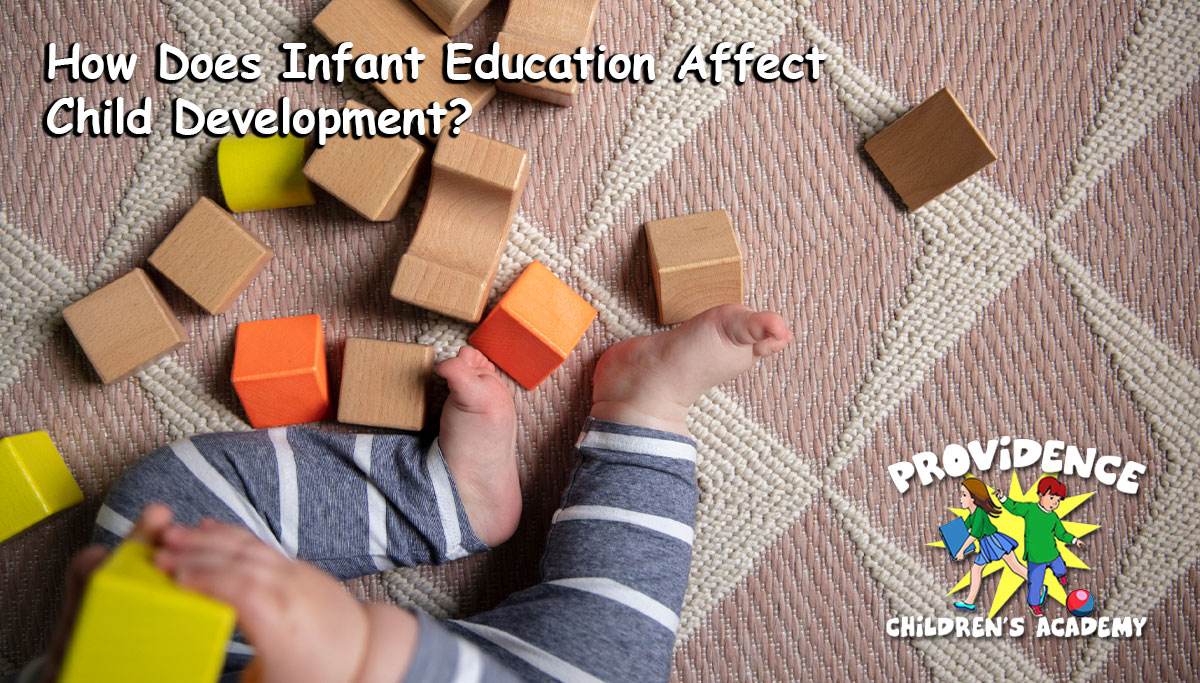
Every parent wants their child to have the best start in life. Fortunately, children are naturally inclined to love learning. The early years, from babyhood to the toddler phase, are full of new discoveries and developing new skills. The young brain is basically a sponge, soaking up everything about its surroundings. This includes sights and sounds based on their physical, social, and emotional environment.
This is why early childhood education – particularly infant education – is so important. It helps prepare your child for the formal learning that will happen once they are old enough to go to school full-time.
Read on to learn more about how you can get a head start on early childhood learning before your child is ready for pre-K.
The Benefits Of Infant Education
First off, let’s start by explaining what we mean when we use the term “infant education.” Obviously, it’s beyond a baby’s abilities to learn to read or do their multiplication tables (though you can be certain you have a little genius on your hands if they could!).
The “learning” that happens as an infant involves sharpening their cognitive skills, which helps set the stage for preschool and kindergarten later on. We’ll offer some examples of how you can start this learning process in your home.
Here are a few of the ways that early education affects child development:
Your child may be too young for a classroom now, but group learning can still occur at home by simply engaging with family members. Talking to infants, even when they can’t understand, is already building their social skills.
Interacting with other children also teaches them how to relate to others, which includes understanding limitations and boundaries. Even teaching children to be gentle with smaller kids or pets is teaching a form of social development.
Enhances Physical Development
Babies are very interactive. When you play peek-a-boo or patty cake, you’re not just entertaining them but teaching them physical development that sharpens motor skills.
As they get older, age-appropriate toys, books, and puzzles will also enhance that growth. The simple act of playing with blocks or sensory tables is the beginning of later skills, such as handwriting.
Helps Build Cognitive Skills
The more you interact with your young child, the more you help their brain development. This is what will help them learn to read, write, play games, speak, and more: both in school and at home.
Playing music around your baby or singing songs and reading to them are two of the best ways to start this learning. These simple activities, which increase the bond between parent and child as well as shape young brains, are the building blocks for understanding phonics.
From there, more advanced activities like matching or sequencing can help young children grasp basic mathematical concepts in a classroom one day. When learning is presented as something fun, they will be excited about the opportunities that school will provide down the road.
Infant Education And More In South Florida
It’s never too early to get kids excited about learning. At Providence Children’s Academy, our licensed and professional staff will teach your child skills that will carry them through all their years of schooling and beyond.
Our programs range from early childhood education to after-school care and VPK programs. Known for our play-focused approach to learning, we are proud to help children in Coconut Creek associate “school” with “fun” for years to come.
To learn more about the programs we offer, call today at 954-570-6914.
